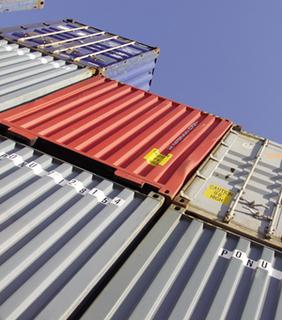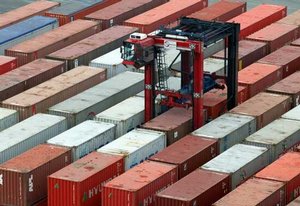Groans of disappointment could be clearly heard on trading floors and in board rooms across Europe this week
Published:
9 November 2002 y., Saturday
Groans of disappointment could be clearly heard on trading floors and in board rooms across Europe this week when central bankers failed to prescribe what many thought was the best medicine for the region's ailing economy -- lower interest rates.
After all, the U.S. Federal Reserve -- the keepers of the world's biggest economy -- had finally ended a year-long draught and eased the taps on borrowing, cutting its key rate by a bigger-than-expected half a percentage point.
But instead of following the Fed's lead, the European Central Bank did what it has done since November 2001 -- nothing.
For the 12-nation eurozone, the main concern is not deflation, but inflation -- the barometer used by the ECB to test the health of the economy and set monetary policy.
So far, the ECB would argue, member countries have failed to keep inflation below the central bank's 2 percent comfort zone and many have made matters worse by not adhering to the European Union's Stability and Growth Pact, which requires governments to limit their budget deficits to 3 percent of gross domestic product.
The ECB fears that overspending and large government deficits will erode confidence in the euro, pushing its value lower and making it more expensive to buy imported goods -- further flaming inflation.
The biggest offenders have been countries with the biggest economies -- Germany, France and Italy. For month, central bankers have been embroiled in a debate with these countries over the deficit issue -- overlooking, says some analysts, the more important issue of interest rates.
Šaltinis:
cnn.com
Copying, publishing, announcing any information from the News.lt portal without written permission of News.lt editorial office is prohibited.
The most popular articles
 President of the Republic of Lithuania Dalia Grybauskaitė welcomed the decision taken by the U.S. Government to transport shipments for the international mission in Afghanistan by transit via the Klaipėda Seaport.
more »
President of the Republic of Lithuania Dalia Grybauskaitė welcomed the decision taken by the U.S. Government to transport shipments for the international mission in Afghanistan by transit via the Klaipėda Seaport.
more »
 EU Solidarity Fund aid to repair storm damage in France and Portugal was approved by the Budgets Committee on Thursday.
more »
EU Solidarity Fund aid to repair storm damage in France and Portugal was approved by the Budgets Committee on Thursday.
more »
 The European Investment Bank and the Government of Samoa formally agreed to support the rehabilitation and upgrade of independent water schemes in the Pacific island state under a EUR 250,000 technical assistance programme.
more »
The European Investment Bank and the Government of Samoa formally agreed to support the rehabilitation and upgrade of independent water schemes in the Pacific island state under a EUR 250,000 technical assistance programme.
more »
 Steps to overhaul the European Union's flagship single market were discussed on Tuesday (9 November) by MEPs and interested parties.
more »
Steps to overhaul the European Union's flagship single market were discussed on Tuesday (9 November) by MEPs and interested parties.
more »
 Strategy to secure a sustainable EU energy supply and support economic growth over the next decade.
more »
Strategy to secure a sustainable EU energy supply and support economic growth over the next decade.
more »
 EU funding to help 850 former workers in the aircraft maintenance industry around Dublin find new jobs was approved by the European Parliament on Thursday.
more »
EU funding to help 850 former workers in the aircraft maintenance industry around Dublin find new jobs was approved by the European Parliament on Thursday.
more »
Saffron farmers in western Afghanistan hope to oust opium as a harvest crop.
more »
 The European Commission has approved an application from Poland for assistance from the European Globalisation adjustment Fund (EGF).
more »
The European Commission has approved an application from Poland for assistance from the European Globalisation adjustment Fund (EGF).
more »
 New plans for EU industry to create jobs while keeping manufacturing in Europe.
more »
New plans for EU industry to create jobs while keeping manufacturing in Europe.
more »
 The European Commission has approved two applications from Spain for assistance from the EU Globalisation Adjustment Fund (EGF).
more »
The European Commission has approved two applications from Spain for assistance from the EU Globalisation Adjustment Fund (EGF).
more »